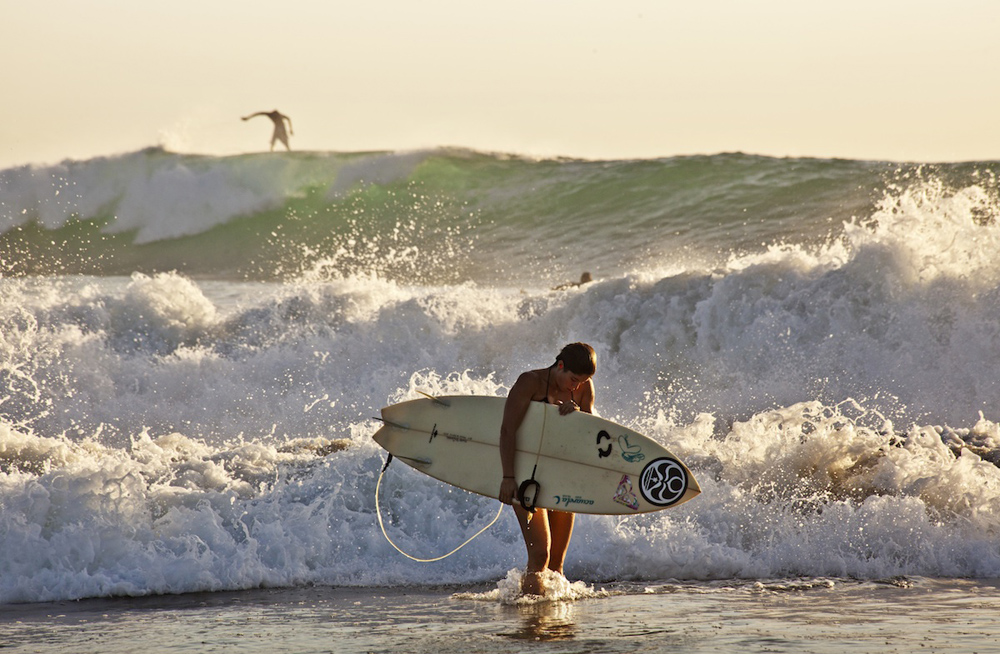photo by: Matador Ambassador Allie Bombach
The allure of surfing is underestimated. I got into it at an early age; I didn’t consider the long-term effects. Neither did my parents. In 1995 surfing was pretty much socially acceptable. And as a kid I had a lot of free time, so it never conflicted with anything.
At Wainui Beach, in Raglan, where I write from, I recently saw a beginner riding the line, grinning from ear to ear. Why was she grinning? When you see how each wave breaks uniquely and bizarrely, each one like a gift to you, and as you harness that energy and the gravity of the earth to propel yourself across a liquid surface, you develop an appreciation for the natural world.
